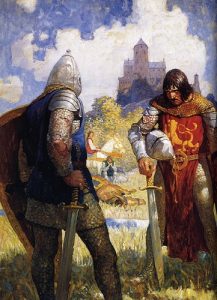
King Arthur and His Part in the Breaking of the Round Table
Amy is an English Major and a senior at Mizzou. At the age of sixteen, she decided to drop out of high school and continue her education at a local community college. It was there that she found a passion for school and writing. She strives to learn something new every day about…
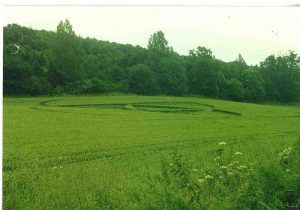
Crop Circles Explained
McKenzie is a senior student, studying magazine journalism. She really loves scary movies. Arts and culture are her favorite things to write about, and she loves how they are incorporated into film. She chose this topic because she loves the legends and stories surrounding aliens and crop circles, and not to…

Conflict Analysis
Jakob is an undergraduate student at the University of Missouri Columbia double majoring in Computer Science and Music. He was the secretary of the Eta Upsilon chapter of Kappa Kappa Psi, and a mellophone player in Marching Mizzou, the Big M of the Midwest. In his spare time, he's a performer,…

A Glimpse of Everything
Sean is a junior in Biological Science, majoring in biology. He is originally from Wildwood, Missouri. He has two papers published in Artifacts Journal: A Conscious Universe and How to Live a Life. As he was interested in examining a section of a work that came close to illustrating an author's entire worldview,…

Using Outlines to Teach Critical Thinking
In the years that I have been teaching WI courses at the University of Missouri, I’ve learned a few things that have helped me be a more effective teacher. First, it is important to be clear about your goals and to include learning strategies that enable students to achieve that goal.

Student Writing Before—and in Addition to—WI Courses
Many faculty are understandably curious about the writing instruction students will receive as students here. To earn an undergraduate degree at MU, every student is required to take three writing courses: English 1000 followed by two WI courses, one of which must be at the upper division level in the major. ENGL 1000 is overseen by the Composition Program in the Department of English, while the WI curriculum is overseen by Campus Writing Program.
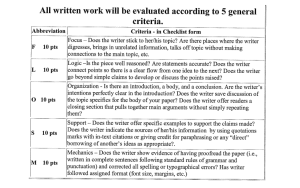
Teaching Writing Using Rubrics
Evaluating student writing can be difficult, and assuring consistent grading from one assignment to the next and between various faculty/TA graders can be particularly challenging. You might ask, why is this? Many factors contribute to the issues we face when evaluating student writing.
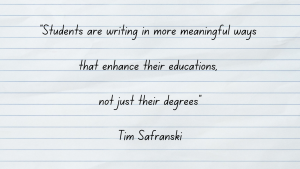
Intentional Ambiguity in Assignment Design
When deciding to incorporate writing into a course, most instructors have learned that this is not as easy as “I’ll just assign an essay.” For many, the first step is to determine what the learning objectives are for the writing assignment: what do you want your students to get out of writing this paper?
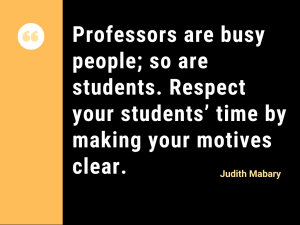
“We’re all in this together”: Methods for Utilizing Peer Review
Peer review allows students to experience the advantage of feedback not only from the instructor but from their colleagues as well. There are several reasons to recommend employing such an approach, not least of which is a related phenomenon: peer pressure.

Biological Sciences Professor Earns Win Horner Award
Biological Sciences Professor Miriam Golomb sees Writing Intensive (WI) courses as a chance for students to re-examine concepts with a deeper understanding.